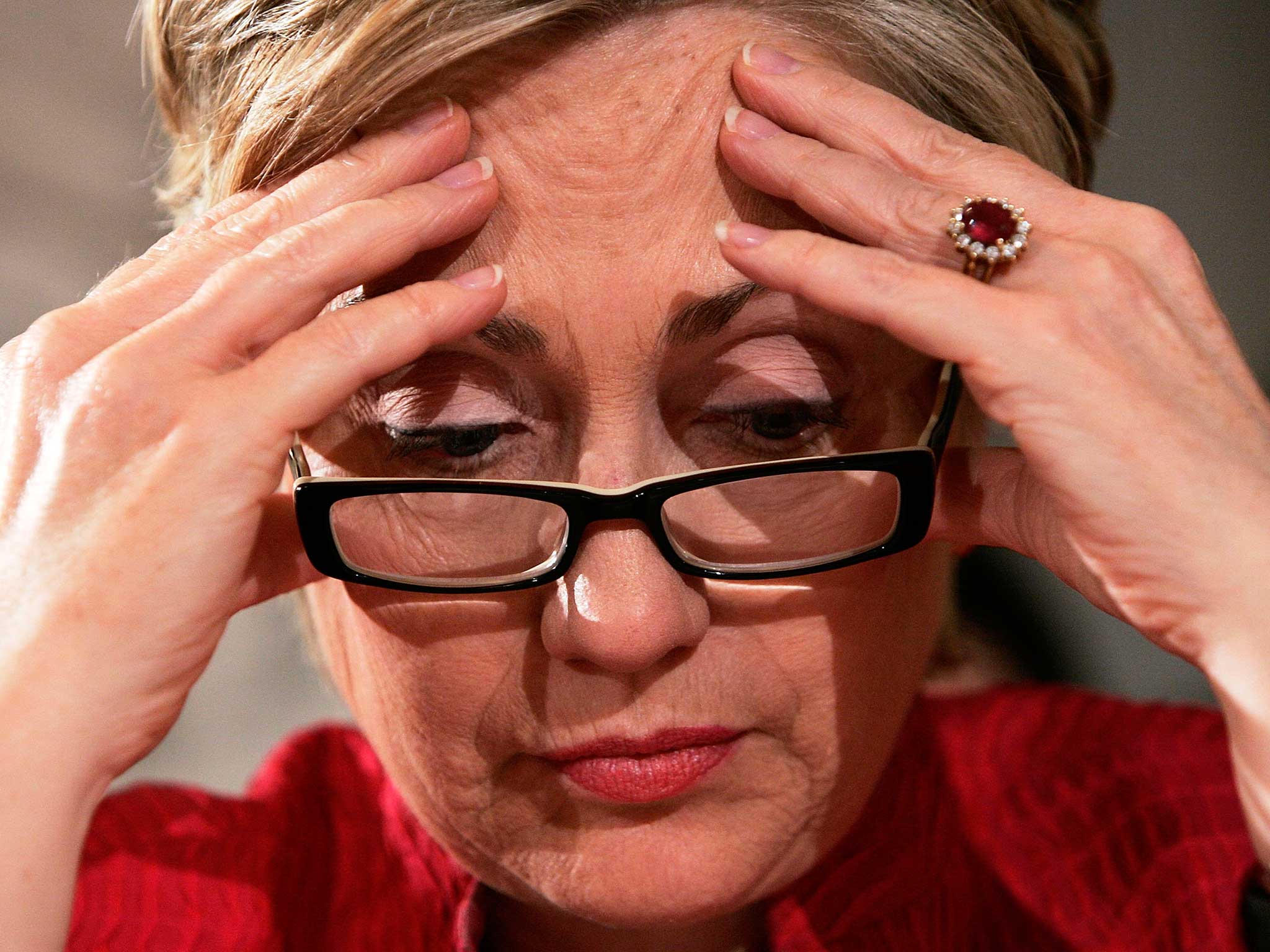What would happen to TTIP if Hillary Clinton wins the presidency?
The prospect of a (second) President Clinton has grown increasingly more realistic in recent weeks as the Trump campaign has been damaged - perhaps terminally - by sexual assault claims. But what would a Hillary victory mean for the much-vexed subject of global trade? Here's how it could look...

Your support helps us to tell the story
From reproductive rights to climate change to Big Tech, The Independent is on the ground when the story is developing. Whether it's investigating the financials of Elon Musk's pro-Trump PAC or producing our latest documentary, 'The A Word', which shines a light on the American women fighting for reproductive rights, we know how important it is to parse out the facts from the messaging.
At such a critical moment in US history, we need reporters on the ground. Your donation allows us to keep sending journalists to speak to both sides of the story.
The Independent is trusted by Americans across the entire political spectrum. And unlike many other quality news outlets, we choose not to lock Americans out of our reporting and analysis with paywalls. We believe quality journalism should be available to everyone, paid for by those who can afford it.
Your support makes all the difference.Hillary Clinton has won the White House and the sighs of relief are echoing around the world. But on to business, how will the newly annointed President Clinton approach the subject of global trade? This will be one of the most closely watched storylines of the early part of her term of office.
The minutiae of international trade agreements is hardly a sexy subject but the Trans-Pacific Partnership (TPP) and the Transatlantic Trade & Investment Partnership (TTIP) have become the subjects of fierce debate in the US all the same.
They will remain so even if the defeat of Donald Trump has brought an end to his threats to torch existing deals such as the North American Free Trade Agreement (NAFTA). Trade deals are at the centre of a fault line in American politics that cuts across both main parties.
In her heart of hearts, President Clinton is a supporter of free trade, and of the multi-national agreements between countries that make it happen, like the aforementioned.
She said as much in her memoir “Hard Choices” and she played a key role the administration of her husband that ratified the much criticised NAFTA.
She was a supporter of the TPP prior to the rise of Senator Bernie Sanders, who pushed her close during the primaries, partly on the back of the opposition to it and similar deals in America’s rust belt.
Clinton is also a supporter of exporting American power alongside American goods and supporters of the TPP say it, and other deals of its type, do that.
The 12 country agreement, if ratified, will be the biggest regional free trade deal yet to be finalised. Its advocates argue that it will stimulate economic growth, create more jobs than it displaces, and also cement an American approach to trade and business in one of the world’s most economically dynamic regions. As opposed to, say, the Chinese way of doing things. China, despite what Donald Trump insinuated during the campaign, is not part of the deal although it might at some stage join.
President Obama, another strong advocate, will nonetheless struggle to get ratification of the TPP through the lame duck session Congress prior to the transfer of power in the face opposition from both sides of the aisle. Speaker Paul Ryan had refused to countenance what he considered to be a pointless vote during the election campaign.
The arithmetic of the new Congress is more favourable to Clinton. Will she be able get it through? Will she even try after going cold on the deal during the campaign?
The success of Sanders is partly responsible for that. He remains a fierce opponent of the TPP and of the TTIP, and he isn’t going anywhere. He will not be sidelined by taking a relatively low profile job in the Clinton cabinet and is free to make trouble now the threat of Trump has been dealt with.
Whether she can face him down depends on whether President Clinton feels strong enough to pivot again.
She will face pressure to do so. Many of her influential supporters, and more to the point, many of her influential donors, are enthusiastic backers of the TPP.
Clinton’s campaign benefitted from a flood of Wall Street money, and Wall Street wants the agreement ratified. Much of corporate American shares that view.
E-mails published by Wikileaks have demonstrated the struggles the Clinton campaign had with the issue.
Jimmy Dore, speaking on The Young Turks, the liberal online news network, has said that he thinks the e-mails show how she will ratify the TPP and perhaps the TTIP after it.
If it meets three tests: That it will help the middle class, create more jobs than it displaces, and strengthen America’s national security she could make the case for signing.
“If the TPP meets these three tests she’ll endorse it, “ Dore predicted. “They’re telling you right now how Hilary Clinton will come around to pass it and this is the criteria she’ll use.”
Given Clinton’s history, and her natural inclinations, he’s probably right. Clinton is going to do her damnedest to find a way to sign up.
Join our commenting forum
Join thought-provoking conversations, follow other Independent readers and see their replies
Comments